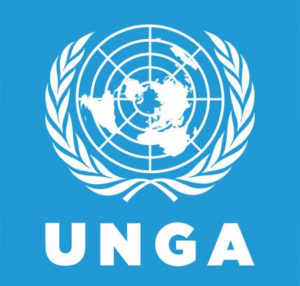There’s no confirmed report of a trilateral agreement involving Xi Jinping, Narendra Modi, and Min Aung Hlaing specifically on building a strategic road linking China, Myanmar, and India. However, there are several bilateral developments and multilateral meetings that hint at strategic coordination, though not a single unified infrastructure pact.
China–Myanmar–India Road Link: Status
- While the idea of a trilateral highway has circulated for years—especially under the BCIM (Bangladesh-China-India-Myanmar) Economic Corridor—India has paused its participation in BCIM due to strategic concerns, particularly over sovereignty and China’s Belt and Road Initiative.
- Recent meetings between Xi and Min Aung Hlaing emphasized advancing the China–Myanmar Economic Corridor, which includes infrastructure projects like roads, ports, and energy pipelines2.
- Modi and Xi did meet at the Shanghai Cooperation Organization (SCO) Summit in Tianjin in August 2025, but no public record confirms a trilateral infrastructure agreement involving Myanmar.
Other Confirmed Agreements
China–Myanmar
- Multiple bilateral agreements signed in customs, media, and infrastructure cooperation.
- Emphasis on Belt and Road projects, border stability, and combating cross-border crimes3.
Myanmar–Russia
- In March 2025, Min Aung Hlaing and Putin signed ten agreements, including:
- Construction of a small-scale nuclear power plant in Myanmar
- Cooperation in energy, defense, customs, education, and space technology
- Expansion of Russian oil exports and military equipment supply
China–India
- Xi and Modi pledged deeper cooperation at the SCO Summit, especially in response to global trade tensions.
- No confirmed joint infrastructure projects with Myanmar were announced.
So while there’s no trilateral road agreement, the web of bilateral deals—especially China–Myanmar and Myanmar–Russia—suggests a growing strategic alignment. If such a road project were to emerge, it would likely be framed within China’s Belt and Road and Myanmar’s regional connectivity ambitions, but India’s cautious stance makes a full trilateral pact unlikely for now.
I wrote the above after reading Myo Yan Naung Thein
တရုတ်၊ မြနမာ၊ အိန္ဒိယ မဟာဗျုဟာ လမ်းဖောက်ဖို့ ရှီကျင်ဖျင်၊ မိုဒီ၊ မင်းအောင်လှိုင် သဘောတူပြီး ဒီနေ့လက်မှတ်ထိုးကြတယ်။ ဒါက မိုဒီရဲ့ မြန်မာအပေါ်ရပ်တည်မှုကို ထပ်ပြီးပြသတာဖြစ်တယ်။ ဒါဟာ ရခိုင်တပြည်လုံးကို ငါတို့သိမ်းထားပြီ ၊ ငါတို့ကို မိုဒီက တနည်းတဖုံအသိအမှတ်ပြုမှာပဲ ၊ ဆက်ဆံလာမှာပဲလို့ စိတ်ကူးယဉ်နေတဲ့ AA အတွက် ပြင်းထန်တဲ့သတင်းစကားဖြစ်တယ်။ AA က စစ်ရေးပါဝါကောင်းတယ်၊ NUG မှာက political legitimacy ရှိတယ်။ ဒါကပေါင်းစပ်ရမှာဖြစ်တယ်။ စစ်အနိုင်တိုက်ရေးအဓိက ၊ စစ်နိုင်နေရင် အရာရာအားလုံးပြီးပြည့်စုံပြီလို့ထင်မှတ်မှားနေရင်တော့ ၊ စစ်ရှုံးစစ်ကော်မရှင်ရဲ့ နိုင်ငံရေးကစားကွက်ထဲမှာ ကိုယ့်ဖက်က အသက်တွေအများကြီးရင်းနှီးထားရတဲ့မြို့တွေကို သေနတ်တစ်ချက်မပစ်ဖေါက်ရပဲ အကြမ်းဖက်စစ်တပ်ကပြန်ယူသွားလိမ့်မယ်။ AA ကို UWSA လိုအခြေအနေလိုမျိုး အကြမ်းဖက်စစ်တပ်ကမပေးမှာမဟုတ်ဘူး။ AA က UWSA လိုတရုတ်နယ်စပ်မှာမဟုတ်ဘူး။ UWSA ဆိုတာ တရုတ်ရဲ့မွေးစားသားဖြစ်တယ်။ AA က အဲ့ဒီအခြေအနေမရနိုင်ဘူး။ ပြည်မဒေသ ပြီးရင် အကြမ်းဖက်တွေက AA ကိုထိုးစစ်ဆင်မှာ။အဲ့ဒီအခြေအနေမှာမှ ငါတို့က ဆရာကြီးတွေ သီးခြားပဲရပ်တည်မယ် ဆိုရင်တော့ အားလုံးခံကြပဲ။ မကြာခင် AFTAcကိုအပြီးသတ်ရေးဆွဲမယ်၊ ပြီးတာနဲ့ AA အပါအဝင် ရေးဆွဲရာမှာ မပါဝင်တဲ့အဖွဲ့တွေနဲ့ညှိမယ်လို့ ဖဒိုစောတောနီး၊ ဆရာဆလိုင်းလျှံမှုန်းဆာခေါင်းတို့ကပြောတယ်။ အဲ့ဒီအချိန်မှာ အားလုံးသဘောတူနိုင်ရင် တရားဝင်မှုရှိတယ်၊ နိုင်ငံတကာက လစ်လျုရှုလို့မရတဲ့ အစီုးရအဖွဲ့ကိုရမယ်။





